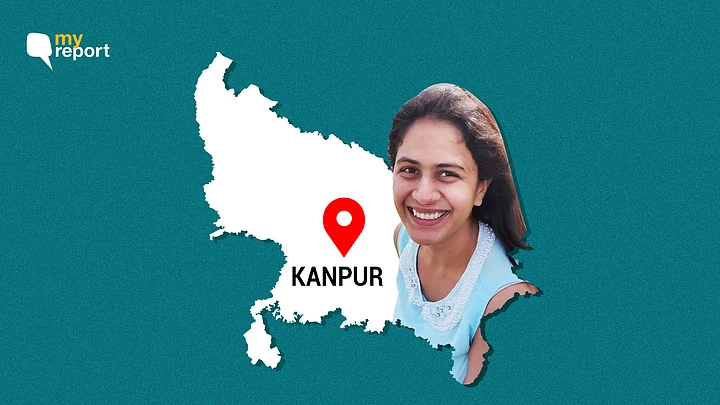The first step to changing the country, or as the naive optimistic Indian thinks, is to vote. I am part of that sample. In the last general election, I was working in Gujarat, very far away from my constituency of Kanpur. I did not have the leave or the money to travel and vote.
As I look back, I should have felt rage and channelised it to campaign for a postal vote in the 2019 election.
India, which is the largest democracy in the world, leaves most of its tax paying population helpless when it comes to casting a vote.
Still, I felt guilty every time I criticised the current government. I felt that I should have voted and only then acquired the right to criticise. This is to give you a background of the utopian ideals I carried when I went to cast my vote in Kanpur.
I applied for a leave and booked tickets as soon as the election dates for my constituency was announced.
I read about all the candidates, did a background check of criminal records and walked in prepared to vote for the MP, and not the final prime ministerial candidate.
On 29 April, I walked into the polling centre at 6:30 am thinking that this will be over before the heat wave sets in. There were a lot of other people like me; old people, pregnant women, physically handicapped, all waiting to exercise our right. We were not debating or just talking about who we support, but actually doing our part. We were all united in the exercise of the right. It was a good feeling!
The Events of the Day
At 7 am, I was the first in line in booth no 20, Bhartiya Vidyalaya Inter-college, Acharya Nagar. In all other booths, the voting had started. At our booth, the presiding officer casually sauntered in and said “machine kharab hai, abhi waqt lagega” (There is a fault with the EVM machine, it will take time to begin). Everyone in the queue was disappointed, yet hopeful that it was a minor delay. All continued making jokes about political parties. At 7.30 am, we realised that the EVM, which was scheduled to be tested at 6 am, was never tested. By this time, the people were agitated, the queue was getting longer and it was obvious that the four people sitting inside had no idea what they were doing.
Who was responsible? Was the assurance that we would not go home until we vote enough?
On speaking to the observer, it was informed that the ‘agents’ were not there on time to conduct the mock test. The centre as a whole did not conduct any test drills before 7 am. The word spread around was that the machine is not working and that is nobody’s fault. Is that so?
The agents on election duty are trained for this job, trained to ensure that they can deal with technical glitches in time. Would this delay have happened if the training was properly instituted and if they were sensitised to the importance of voting?
I tried to create a scene where I demanded that the officers be answerable. On one hand people behind me in the queue contributed to the inquiry but on the other, they all wanted this to get over soon and they all go back!
The problem was not the technical issue with the machine but the attitude of the officers deployed on election duty. The officers treated this whole situation with an air of effortless casualty.
In about an hour after the complaint was escalated, the Sectoral Magistrate was there but the attitude was the same, “Voting shuru ho gaya toh problem kya hai?” (If the voting has started, then what is your issue?).
I had spent the weekend weighing my options to determine which candidate will represent my interests better in the Lok Sabha, but at this moment, voting felt irrelevant.
The people around me were not as deeply affected. Everyone normalised the events of the day, and this was perhaps even more disturbing than the attitude of the officers.
Why did the four officers not run the mock test at 6 am in the morning as mandated by the Election Commission? Why did they not know what to do when the EVM was not working? Did they not attend the training?
Moreover, are democratic elections simply about voting with no regard for what is wrong with the process? Or is it symbolic of the participation of voters like me to stand up against the mediocre operation of institutions?
I will remember the words of this old man standing next to me while I was trying to demand an enquiry and punitive consequences: “Yeh sirf bol rahe hain, yeh Uttar Pradesh hai, yahan kuch nahi badlega” (these people are only talking, this is Uttar Pradesh, nothing is going to change).
The voting started at around 8 am. The people of UP who have been conditioned to receive answers that evade responsibility, carried on!
After I cast my vote, I was ushered out by a female constable for attempting to ‘interrupt the election process’ and threatened arrest. So much for starting my day thinking this is the first step to changing the future, hoping that I will bring my children into a country governed by a more responsible government, to an anti-climax where I was threatened to be arrested for asking questions about the complacence in the process.
(All 'My Report' branded stories are submitted by citizen journalists to The Quint. ThoughThe Quint inquires into the claims/allegations from all parties before publishing, the report and the views expressed above are the citizen journalist's own. The Quint neither endorses, nor is responsible for the same.)
(At The Quint, we question everything. Play an active role in shaping our journalism by becoming a member today.)
